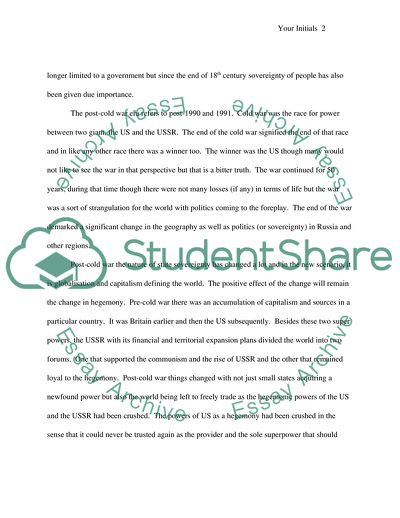Cite this document
(To What Extent Has the Nature of State Sovereignty Changed in the Post Essay, n.d.)
To What Extent Has the Nature of State Sovereignty Changed in the Post Essay. Retrieved from https://studentshare.org/history/1718515-to-what-extent-has-the-nature-of-state-sovereignty-changed-in-the-post-cold-war-era-has-this-change-been-positive-or-negative
To What Extent Has the Nature of State Sovereignty Changed in the Post Essay. Retrieved from https://studentshare.org/history/1718515-to-what-extent-has-the-nature-of-state-sovereignty-changed-in-the-post-cold-war-era-has-this-change-been-positive-or-negative
(To What Extent Has the Nature of State Sovereignty Changed in the Post Essay)
To What Extent Has the Nature of State Sovereignty Changed in the Post Essay. https://studentshare.org/history/1718515-to-what-extent-has-the-nature-of-state-sovereignty-changed-in-the-post-cold-war-era-has-this-change-been-positive-or-negative.
To What Extent Has the Nature of State Sovereignty Changed in the Post Essay. https://studentshare.org/history/1718515-to-what-extent-has-the-nature-of-state-sovereignty-changed-in-the-post-cold-war-era-has-this-change-been-positive-or-negative.
“To What Extent Has the Nature of State Sovereignty Changed in the Post Essay”. https://studentshare.org/history/1718515-to-what-extent-has-the-nature-of-state-sovereignty-changed-in-the-post-cold-war-era-has-this-change-been-positive-or-negative.


